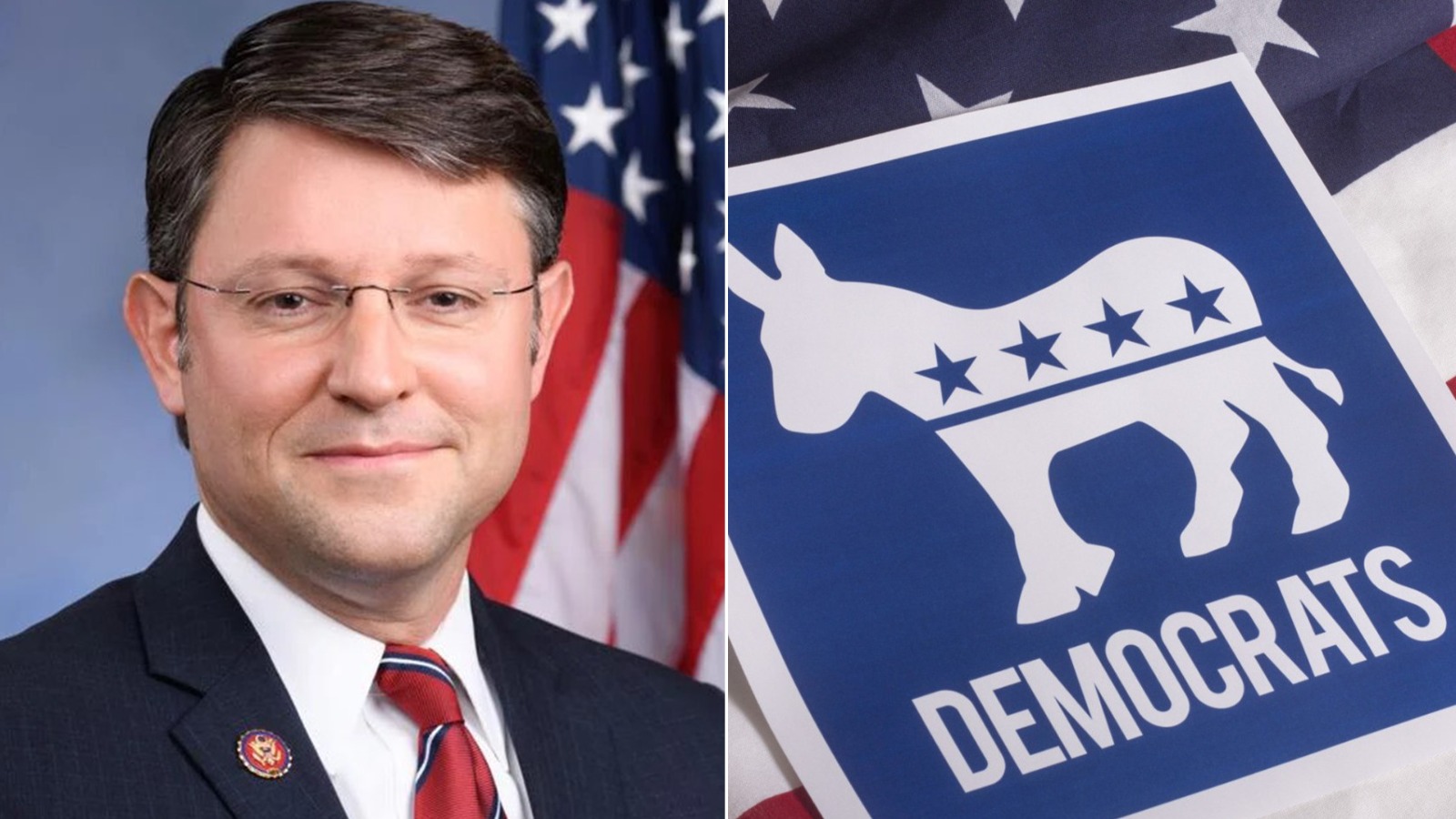Mike Johnson’s recent actions have stirred controversy and accusations of potential treason against the 198 Democrats who voted against the SAVE ACT. The SAVE ACT, a legislative proposal aimed at bolstering national security measures, was passionately supported by Johnson and his allies. Its defeat in Congress, however, has ignited a fierce backlash from proponents who view it as a critical safeguard against threats to the nation’s safety.
Johnson, a staunch advocate for increased border security and immigration reform, has vocally criticized the Democrats’ decision to oppose the SAVE ACT. He argues that their vote undermines efforts to protect the country from external threats and secure its borders effectively. In a heated address following the vote, Johnson condemned what he termed as a betrayal of national interests, accusing the dissenting Democrats of prioritizing political agendas over safeguarding the nation.
The SAVE ACT, crafted with bipartisan support, aimed to enhance screening processes at entry points, strengthen surveillance along vulnerable borders, and streamline immigration procedures. Proponents argued that these measures were essential for maintaining national security and preventing unauthorized entry into the country. The defeat of the bill, therefore, represents a significant setback for those advocating stricter immigration controls and heightened security protocols.
Critics of the SAVE ACT, however, voiced concerns over its potential impact on immigrant communities and argued that its provisions could lead to increased discrimination and hardship. They emphasized the importance of addressing immigration through comprehensive reforms that prioritize humanitarian considerations alongside security concerns.
The fallout from the SAVE ACT’s defeat has intensified partisan tensions and renewed debates over immigration policy and national security priorities. Johnson’s accusations of treason against the Democrats who opposed the bill have further polarized public opinion, with supporters applauding his unwavering stance on border security and critics decrying what they perceive as inflammatory rhetoric.
In response to accusations of treason, Democratic leaders have defended their votes as reflective of broader policy disagreements rather than acts of disloyalty to the nation. They argue that legislative decisions should be guided by careful consideration of all implications, including constitutional principles and the rights of immigrants seeking refuge or opportunity within the United States.
The broader implications of the SAVE ACT’s defeat extend beyond immediate legislative setbacks. The controversy has underscored deep-seated divisions within Congress and the electorate regarding immigration policy, national security, and the balance between protecting borders and upholding humanitarian values.
Moving forward, the debate over immigration reform and national security measures is likely to remain contentious and complex. Both parties face the challenge of finding common ground while addressing divergent perspectives on how best to address the country’s immigration challenges without compromising its fundamental values and commitments.
As lawmakers and advocates continue to navigate these complex issues, the aftermath of the SAVE ACT’s defeat serves as a potent reminder of the profound stakes involved in shaping policies that impact the lives and security of millions within and beyond America’s borders.
